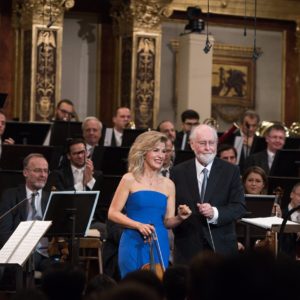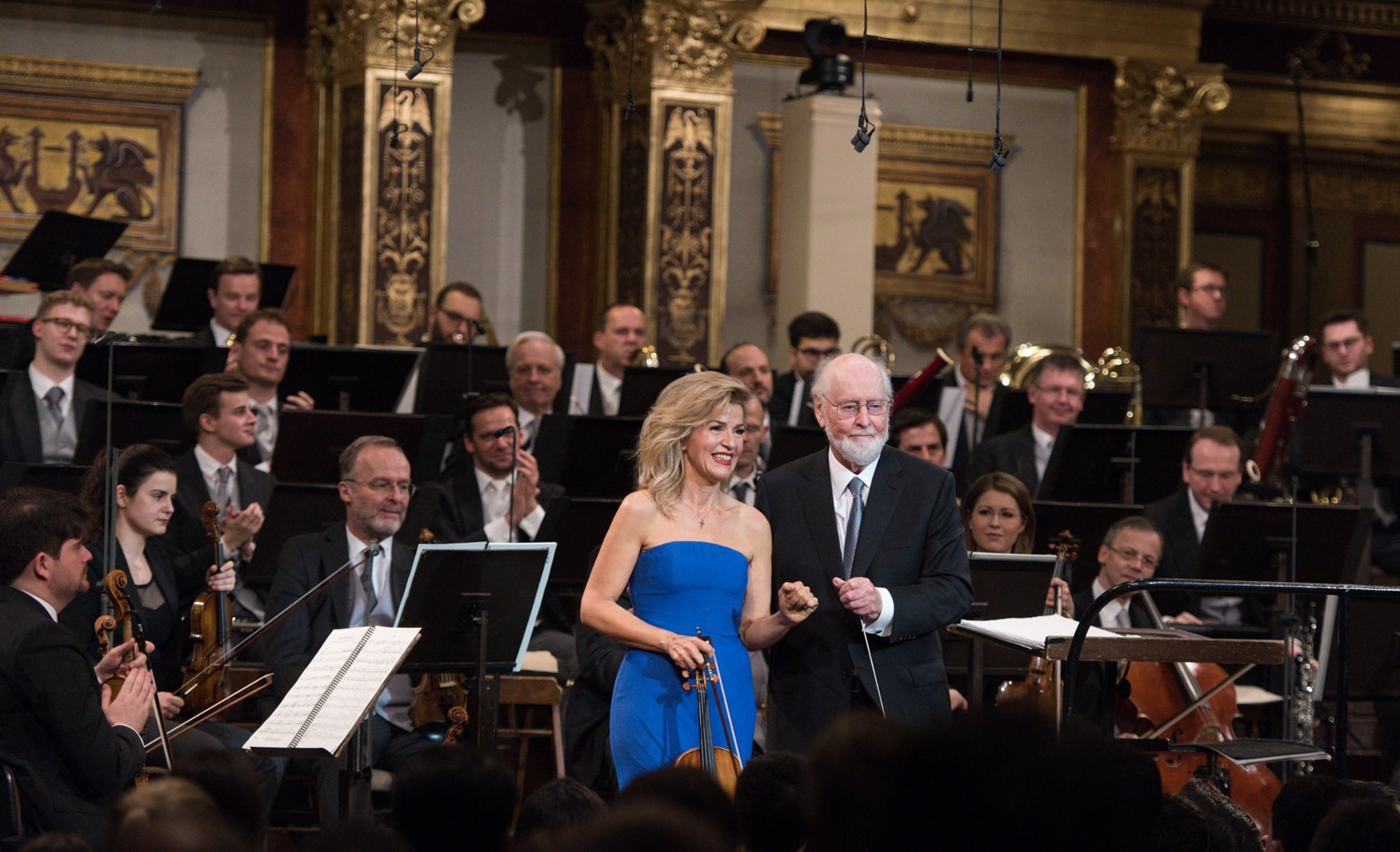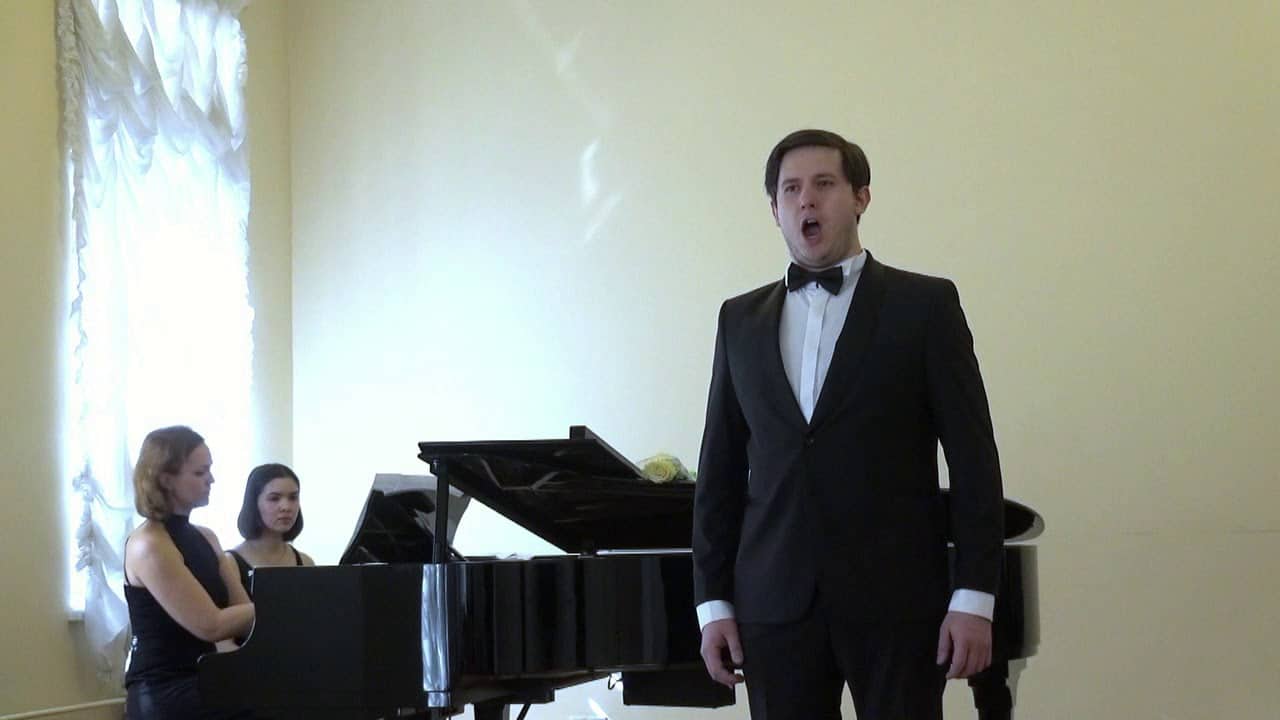John Williams world premiere – why no reviews?
NewsLast Saturday in Tanglewood, Anne-Sophie Mutter gave the first performance of a violin concerto by John Williams, the second he has written for her.
The concert was streamed by her record label.
Williams and Mutter had previously combined on a topselling release.
This ought to have been newsworthy.
Yet neither the New York Times did not send a critic.
Why is that?
Too lowbrow?

Here’s a review from Limelight magazine in Australia, which watched the performance on livestream:
The new concerto’s Prologue has a late Mahlerian feel at the start, with a slow solo harp over sustained lower strings. Mutter’s entry on the lower string has a yearning sense, building to a Bartókian intensity with rapid anxious broken runs and the orchestra at full volume. This dies away to a peaceful interlude with harp arpeggios accentuating Mutter’s warm and sensual tone…






Ahem, the Boston Globe posted a review 5 days ago….. https://www.bostonglobe.com/2021/07/25/arts/tanglewood-super-salute-john-williams-man-scores/
Shoot the messenger!
John Williams don’t need reviews. The is John Williams first Violin Concerto written to ASM. Andre Previn also wrote a Violin Concerto to her. John Williams first Violin Concerto was dedicated to John Williams late wife Barbara Ruick.
It contains a motif that is similar to “In the Moonlight” from Sabrina which was sung by Sting.
Pandemic and the restrictions in America from one state to another may well be one of the many and justifiable non-musical reasons.
Obviously I was wrong. Reviews have come in slowly.
Maria – there are currently no travel restrictions between states in USA.
Here they are:
https://www.jwfan.com/?p=13392
Here it is, from 8:06 onwards:
https://www.arte.tv/en/videos/104491-000-A/anne-sophie-mutter-john-williams/
Williams has two styles: 1) film music; and 2) serious early 20C music inspired by Schoenberg and Berg. This violin concerto is in style 2, it is a serious, tragic work, depicting the inner turmoil and struggles of a film music composer who actually had wanted to be a serious classical composer. The brooding and fretting music gives ample opportunity for the soloist to indulge in Mutterleid, without the narrative comes anyway near to a coherent and convincing expression, but afterwards the audience got treated on a Williams film music dessert, like a piece of cake after having worked through your broccoli.
Broccoli is delicious when cooked properly. Especially when accompanied by a delicious cheese sauce.
Yum.
Agreed, but for children it is an ordeal, with or without sauce.
Sour grapes II.
I say that on a regular basis, daily! with almost every dictated comment I’ve to type. But it has no effect alas.
Sally
Just don’t press enter and we are all good.
I can assure you John Williams the film composer is far happier, far wealthier, far more well-known, far more respected, far more listened to, than John Williams the modern music composer.
If it weren’t for the former, the latter would be living in obscurity somewhere in Compton. No Anne-Sophie Mutter would deign to play his pieces, dedicated to her or not (as it is, she didn’t even bother committing this performance to memory, sight reading her part), no BSO or Vienna Philharmonic would invite him to conduct, no NL wondering why no one reviewed the piece.
John Williams the modern music composer is doing this just as a side gig to earn some respect, so that his obituary in the NYT will read “he was also a serious composer”.
Bit like Lenny Bernstein then?
I don’t know, McAlpine, I don’t have much respect for Bernstein as a composer either.
Does ET know what “sight reading” is?
The New York Times music critics infrequently cover performances outside of New York City, including premiers by the likes of Adams and Higdon.
and they are all in Salzburg at the moment
everyone’s in Europe at the summer festivals….when ASM will be soon as well
Was it dedicated to Alice?
It’s been years since I’ve seen the Times cover concerts at Tanglewood. If I’m not mistaken, a music writer back in the day – I believe his name might have been Norman Lebrecht – wrote in one of his books about a nefarious BSO -Peter/Arthur/Leslie Gelb – Times/Tanglewood connection, that explained why the times often covered Tanglewood more than it covered the Philharmonic. But those days are well in the past.
I didn’t even notice the event. Mind you, I was very absorbed in listening to Furtwangler’s Symphony no 2 conducted by Eugen Jochum.
Keep the bitching up boys and girls….. this really is deadly dull commentary.
Whereas your comment leaps off the page with its originality and brilliance. Those who can think do so. Those who can’t make snide wisecracks – it’s all they can contribute.
Am I the only one who was disappointed by the concerto? I thought Mutter played fabulously – she really is a beast of a violinist who just seems to get better and better with age. I found the concerto to be brooding, yes, but meandering and unengaging. I’m often disappointed by his so called serious music – it always seems as if he is consciously trying to not write a tune, though he obviously can. Hopefully they release a recording so I can change my mind. I do want to, of course, Williams deserves all his accolades as a film composer after all.
I had the same reaction. BTW, I couldn’t believe Anne-Sophie was playing from memory … or was there a score next to her? If she played from memory, it was one of the wildest feats of musical memory I’ve ever seen. And she never got a time out in the whole piece. Also the Boston Symphony Orchestra was fantastic!
Ironically, Williams’ film oriented music is more original than the new violin concerto. Listen, for example, to ASM playing Hedwig’s Theme from Harry Potter with the Vienna Phil.
https://www.youtube.com/watch?v=qsCZP3wdF4w
The contemporary classical music world often leads composers into its own kind of conformity.
That last observation is entirely true, painfully true even. Because at the birth of postwar new music, the idea found wide-spread acceptance that progress dictated continuous renewal of the musical language, which became a party line, dominating education and academia. A whole structure of production came into existence, delivering progress through established channels emerging from the music faculties and conservatoria. Composers becoming professors and the other way around, grants, commissions, performances, all organized along a limited collection of ideas which cannot stand the slightest rational critique, like a religion with taboos. Hence John WiIliams avoiding it and offering nice tunes and juicy sentiment to movie audiences as the only outlet of something musical.
All the more surprising that such processes emerged in a circuit that praised itself to have achieved total freedom.
Review [behind paywall?] in the July 30 online Musical America
Wrong. The Boston Globe DID review it. Besides, newspapers don’t frequently review classical premieres these days.
John Williams’ concert music is terrible. Just awful.
Actually, there were plenty of reviews. As to
“Yet neither the New York Times did not send a critic.”
Is this even English? I don’t think so.